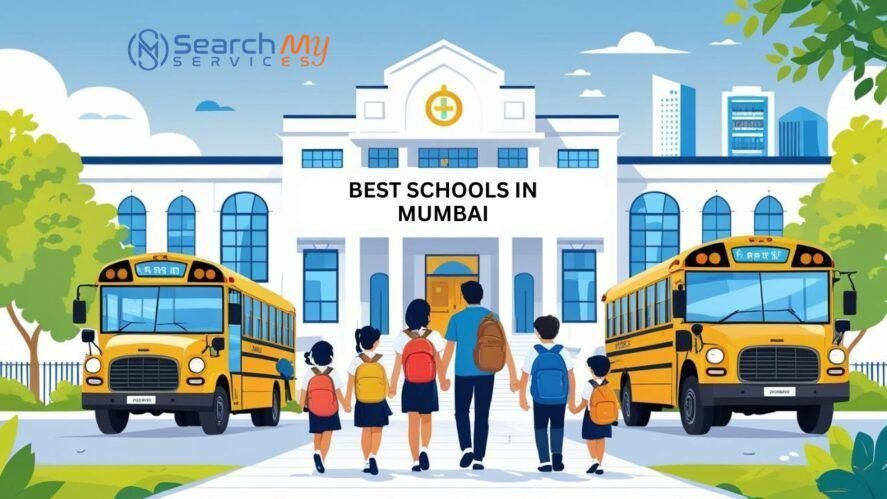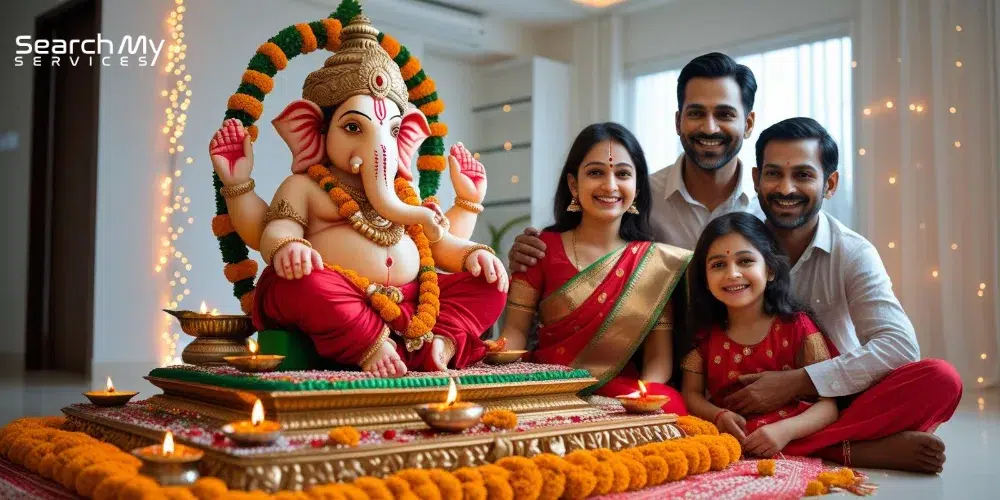Relocating to a new city can be both exciting and challenging—especially when you have school-aged children. Mumbai, India’s financial capital, offers a wide range of educational institutions, from international curricula to state-board schools, each with its own strengths. This guide will help you navigate top schools, key admission factors, and tips to ensure a smooth transition for your child.

Why Selecting the Right School Matters
- Continuity in Learning: A stable academic environment minimizes learning gaps when shifting from one curriculum to another.
- Social & Emotional Well-Being: Familiarity with teaching styles and peer groups helps children adjust faster.
- Holistic Development: Extracurricular offerings, sports, and co-curricular activities vary widely—choose a school that aligns with your child’s interests and strengths.
- Proximity & Commute: Mumbai traffic can be unpredictable—finding a reputable school within a reasonable distance reduces daily stress.
Top Schools by Curriculum and Zone
Below is a breakdown of some of Mumbai’s most sought-after schools, organized by curriculum and approximate location. (Note: fees, admission processes, and seat availability can change—always verify directly with the school.)
CBSE Schools
B P M High School (Andheri West)
- Established over 60 years ago; strong academics and sports culture.
- Facilities: Science labs, computer lab, indoor sports complex.
Ryan International School (Vashi, Navi Mumbai)
- Known for IB-inspired teaching approaches, integrated learning.
- Focus on STEM and soft-skills development; regular parent-teacher interactions.
National Public School (GTB Nagar, Dadar)
- Emphasis on academic excellence; consistently high board results.
- Extracurricular: Debating, quizzing, classical dance, taekwondo.
ICSE Schools
Woodstock School (Hillside, Kalina)
- One of Mumbai’s oldest co-ed ICSE institutions.
- Renowned for arts, music programs, and student leadership initiatives.
Campion School (Ranade Road, Fort)
- All-boys residential day school with a strong alumni network.
- Focus on discipline, sports (hockey, cricket), and community service.
Smt. Sulochanadevi Singhania School (Thane West)
- Modern infrastructure: Smart classrooms, robotics lab, swimming pool.
- Holistic education with emphasis on environmental awareness.
IGCSE/IB (International)
Dhirubhai Ambani International School (Bandra Kurla Complex)
- World-class campus, IB and IGCSE curricula.
- Renowned faculty, global exchange programs, extensive sports facilities.
American School of Bombay (Bandra West)
- Fully accredited by US and CIS bodies; AP courses, Advanced Diploma programs.
- State-of-the-art campus with an international student body.
Ecole Mondiale World School (Juhu)
- IB Continuum Programme (PYP, MYP, DP).
- Specialized labs for design, innovation, and performing arts.
Key Factors to Evaluate Before Admission
Curriculum Compatibility
- Academic Background: If your child was following CBSE/ICSE in their previous city, continuing the same board can reduce academic disruption.
- Future Plans: IB/IGCSE often suit families planning to move abroad later; CBSE/ICSE may be preferable for those staying long-term in India.
Infrastructure & Facilities
- Classroom Size & Student-Teacher Ratio: Smaller classes (20–25 students) allow more individual attention.
- Laboratories & Libraries: Well-equipped science, computer, and language labs enhance learning.
- Sports & Arts: Even if your child isn’t a national-level athlete, access to playgrounds, swimming pools, dance studios, and music rooms is important for all-round growth.
Faculty & Teaching Style
- Qualifications & Experience: Look for teachers with at least five years of experience and relevant degrees (B.Ed., M.Ed.).
- Pedagogy: Inquiry-based learning (common in IB/IGCSE) versus rote/memorization. If your child thrives on projects and exploration, an inquiry-driven environment may be best.
Extracurricular & Co-curricular Activities
- Clubs & Societies: Debating clubs, robotics, Model United Nations—these help build confidence and soft skills.
- Festivals & Events: Annual events, inter-school competitions, cultural fests, and sports meets foster community spirit and social integration.
Affordability & Fees Structure
- Tuition & Miscellaneous Fees: Some schools list separate fees for admission, security deposit, transport, and annual development.
- Sibling Discounts: If you have more than one child enrolling, many institutions offer concessions.
Location & Transport
- Proximity to Residence: Mumbai’s traffic can add significant time to daily commutes—aim for schools within a 5–7 km radius if possible.
- School Buses & Public Transport: Check if the school has its own bus network or if they partner with reliable private operators.
Admission Tips & Timeline
Research Early (6–9 Months Ahead):
- Most reputed schools begin their admission cycles for the next academic year (June–May) by October–November.
- Attend open houses, school fairs, or virtual tours to get a feel for the campus and culture.
Prepare Documents in Advance:
- Birth Certificate, Transfer Certificate (if applicable), Proof of Residence (Aadhaar, utility bills), Passport-size photographs, and previous year’s report card.
Entrance Tests & Interviews:
- CBSE/ICSE schools often conduct informal interviews or short written assessments (English, Math) for Grades 1–8.
- IGCSE/IB schools may require online aptitude tests, followed by one-on-one discussions with the principal or counselor.
Sibling/Alumni Quota & NRI Seats:
- Some schools reserve up to 5–10% of seats for siblings or alumni children—include those details in your form to improve chances.
- NRI seats usually have a separate fee structure—ideal for expatriate families.
Monitoring Seat Availability:
- Use each school’s online portal to check if any new spots open after waitlist movements (often around March–April).
Area-Wise School Recommendations
To help you narrow down options based on locality, here are some popular picks per zone:
- South Mumbai (Colaba, Fort, Dadar): Dhirubhai Ambani International School, Campion School, Bombay Scottish School (Mahim).
- Central Mumbai (Kurla, Ghatkopar, Powai): Bombay Scottish School (Powai), VES School (Chembur), American School of Bombay.
- Western Suburbs (Andheri, Juhu, Bandra): Ecole Mondiale, Jamnabai Narsee School, Podar International School.
- Navi Mumbai (Vashi, Nerul, Kharghar): Ryan International School, DAV Public School, Smt. Sulochanadevi Singhania School.
- Panvel & Beyond (Panvel, New Panvel): Blossoms English High School, Panvelkar English High School, Dr. V.D. Desai Memorial High School.
FAQs (Frequently Asked Questions)
Q1: Can my child switch boards mid-year?
A1: It’s usually best to switch at the beginning of an academic year. However, some CBSE schools conduct lateral entry examinations in April–May for Grades 7–10, especially if you have a Transfer Certificate from a CBSE/ICSE school.
Q2: How do I find a low-fee Mumbai school with quality education?
A2: Government-aided or municipal schools (e.g., Municipal Corporation of Greater Mumbai schools) offer affordable fees (₹300–₹1,500 per year) but may have limited infrastructure. Several trust-run schools (like DAV Public School in Nerul) balance reasonable fees with good facilities.
Q3: Are school fees negotiable?
A3: While published tuition fees are non-negotiable, you can sometimes request waivers on admission or development fees—especially for sibling admissions or staff children.
Q4: Do international schools accept students mid-year?
A4: Most IB/IGCSE schools allow mid-year admissions (September or January intake), provided they have seats and your child can cope with the curriculum fast-track.
Pre-Relocation Checklist for Parents
- Finalize Budget & Fee Structure: Include bus fees, uniforms, textbooks.
- Shortlist 3–5 Schools: Based on proximity, board, and extracurricular fit.
- Schedule Visits/Virtual Tours: If you can’t visit in person, request video walkthroughs.
- Confirm Admission Dates & Deadlines: Note deadlines for online form submission (often November–December for most schools).
- Arrange Temporary Tuition (If Needed): For gap months (June to July) if admission is delayed.
- Connect with Parent Groups: WhatsApp or Facebook groups for “Mumbai Moms” and “Mumbai Dads” can offer real-time feedback.
Conclusion
Relocating to Mumbai doesn’t have to be overwhelming if you plan your child’s education well in advance. By considering factors such as board compatibility, proximity, and holistic development offerings, you can find the perfect school that aligns with your family’s needs. Start researching early, gather all required documents, and lean on local parent communities and school counselors for insights.






